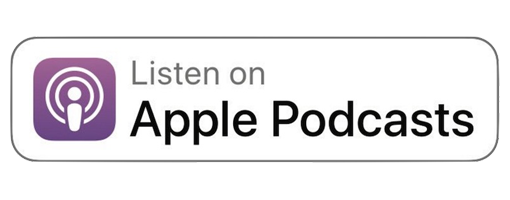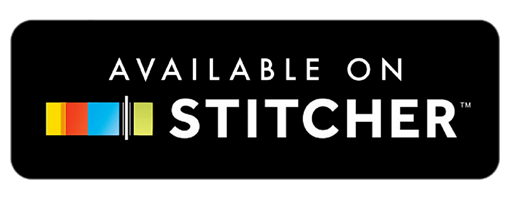Speak Clear English - Enroll Today
VOCABULARY:
30 English Words
About Resumes and CVs

Source: Abal
Today we’re going to talk about vocabulary related to how to write an effective resume or CV (curriculum vitae). In a resume or CV, you can communicate your degrees, your training, your professional experiences, and your professional skills. The resume is an essential tool, whether you are a student looking for a place at a university or a person looking for a job.
Here we will teach you vocabulary related to writing a resume or curriculum vitae that will help you write a resume or CV in English, and ultimately…help you get a job.
English Vocabulary to Know Section
1) Personal information – details about who you are
2) About me – an informal sentence or paragraph about you
3) Full Name – your first and last (family) name
4) Undergraduate – bachelor level at a college/university
5) Graduate – Master’s level studies at a college/university
6) Address – street, city, state, and country where you live
7) Phone – your primary contact phone number
8) Email – electronic mail. This will likely be the primary way your future employer will contact you.
9) Schools – the school(s) you attended for your studies
10) College – higher education institution
11) Graduation date – the date you completed your degree(s)
12) Professional experience – the experience you have so far at any jobs
13) Positions Held – list of jobs you have held so far
14) Dates worked – amount of time worked at previous jobs
15) Skills – abilities you have
16) Soft skills – personal attributes that enable someone to interact effectively and harmoniously with other people
17) Hard skills – technical skills
18) Leadership – act of leading a group of people or organization
19) Teamwork – combined action of a group of people, especially when effective and efficient
20) Position – professional role within an institution
21) Cover letter – one page introduction and overview of experience and skills
22) Qualifications – reason why someone is suitable for a job
23) Reference – person who an employer can contact to verify your skills and work history
24) Volunteer Work – model of unpaid work widely accepted as a way to gain professional experience
25) Extracurricular Course – courses that complement the study load, whether for work or college/university
26) Major accomplishments – main achievements of previous jobs
27) Nationality – status of belonging to a country
28) Intern – a person who is specializing in an area of training and is starting to develop activities in a company
29) Working knowledge – knowledge of how to make something work without any deeper understanding of why it works
30) Language Proficiency – your knowledge of the languages you speak and the level of fluency in each of them
– Beginning: when you are starting your studies and acquiring the basics.
– Intermediate: when you have already started your studies and are a little more focused on the details
– Advanced: when you already have knowledge of different vocabularies related to the language you are learning
– Fluent: when you have mastered reading, writing, speaking and listening skills in a new language
– Native speaker: when you have learned a language since birth
Did I miss any acronyms or terms related to resume writing that you want to know? Comment below to request more tech-related acronyms or terms to be added to the list.
Ready for more English? Speak English clearly when you join one of my life-changing English courses.
Click on one of the links below to starts speaking and writing clearer English!
1) New free mini-course “punctuation mistakes to avoid”
2) Clear English Pronunciation Video Course
3) English Vocabulary – Audio Files & PDF – TOEFL & IELTS
4) Idioms in Conversation
5) Jumpstart Your English Audiobook + eBook
Follow us on Youtube and Instagram:
@studyenglishwithandrea – Daily English posts
@citizenshiptest – To prepare you to pass the United States Citizenship Test
Until next time, Happy Learning!
Speak Clear English - Enroll Today

Jhessika Nascimento
Director of International Partnerships
Jhessika Nascimento is the Director of International Partnerships for Study With Andrea and lives in Brasilia, Brazil.
Jhessika is a bilingual teacher of English and Portuguese, studying for a Master's Degree in Strategic Management in Information Technologies at the Universidad Internacional Iberoamericana.
Graduation in Letters - Portuguese and English.
Postgraduate in Teaching in Higher Education.
Postgraduate in Risk Management and Cybersecurity.
Postgraduate Executive MBA in Process Management BPM-CBOK.
Postgraduate in Translation and Proofreading of Texts in English.
The following is a TOEFL Reading practice test to help you prepare for the Reading section of the TOEFL test.
Instructions: Read the sample passage below and then answer the questions that follow.
TOEFL Reading Practice Passage
Gorillas are ground-dwelling, predominantly herbivorous apes that inhabit the forest of central Sub-Saharan Africa. The genus Gorilla is divided into two species: the eastern gorillas and the western gorillas (both critically endangered), and either four or five subspecies. They are the largest living primates. The DNA of gorillas is highly similar to that of humans, from 95 to 99% depending on what is included, and they are the next closest living relatives to humans after the chimpanzees and bonobos.
Gorillas' natural habitats cover tropical or subtropical forest in Sub-Saharan Africa. Although their range covers a small percentage of Sub-Saharan Africa, gorillas cover a wide range of elevations. The mountain gorilla inhabits the Albertine Rift montane cloud forests of the Virunga Volcanoes, ranging in altitude from 2,200 to 4,300 metres (7,200 to 14,100 ft). Lowland gorillas live in dense forests and lowland swamps and marshes as low as sea level, with western lowland gorillas living in Central West African countries and eastern lowland gorillas living in the Democratic Republic of the Congo near its border with Rwanda.
(#1) Gorillas move around by knuckle-walking, although they sometimes walk upright for short distances, typically while carrying food or in defensive situations. (#2) A 2018 study investigating the hand posture of 77 mountain gorillas at Bwindi Impenetrable National Park (8% of the population) found that knuckle walking was done only 60% of the time, and they also supported their weight on their fists, the backs of their hands/feet, and on their palms/soles (with the digits flexed). (#3) Studies of gorilla handedness have yielded varying results, with some arguing for no preference for either hand, and others right-hand dominance for the general population. (#4)
The eastern gorilla is more darkly colored than the western gorilla, with the mountain gorilla being the darkest of all. The mountain gorilla also has the thickest hair. The western lowland gorilla can be brown or grayish with a reddish forehead. In addition, gorillas that live in lowland forest are more slender and agile than the more bulky mountain gorillas. The eastern gorilla also has a longer face and broader chest than the western gorilla. Like humans, gorillas have individual fingerprints. Their eye color is dark brown, framed by a black ring around the iris. Gorilla facial structure is described as mandibular prognathism, that is, the mandible protrudes farther out than the maxilla. Adult males also have a prominent sagittal crest.
A gorilla's lifespan is normally between 35 and 40 years, although zoo gorillas may live for 50 years or more. Colo, a female western gorilla at the Columbus Zoo and Aquarium, was the oldest known gorilla at 60 years of age when she died on 17 January 2017.
Questions
1. According to the passage, gorillas can live in
a. a variety of altitudes.
b. several different countries in Africa.
c. thick forests.
d. lowland forests only.
2. All of the following is true about gorillas EXCEPT
a. they primarily eat smaller animals.
b. they live in a forest habitat.
c. their genetics are similar to humans.
d. their diet consists of vegetation.
3. Look at the word predominantly in paragraph 1. The word predominantly in this passage refers to
a. impulsively
b. unfortunately
c. mainly
d. lastly
4. Look at the word inhabits in paragraph 2. The word inhabits in this passage refers to
a. lives in
b. protects
c. goes
d. works
5. The author implies that
a. most gorillas prefer using their left hand over their right.
b. gorillas rarely walk on their knuckles.
c. gorillas regularly walk upright for long distances.
d. studies haven't solidly proven which hand gorillas prefer using.
6. Why does the writer mention that the eastern gorilla also has a longer face and broader chest than the western gorilla?
a. To validate the importance a broad chest in western gorillas
b. To define the meaning of "broad"
c. To highlight a physical difference between types of gorillas
d. To demonstrate that most gorillas are identical in physical build
7. Which of the following statements is true for BOTH eastern and western gorillas.
a. Both eastern and western gorrilas are brown with red foreheads.
b. Both eastern and western gorrilas have unique fingerprints.
c. Both eastern and western gorrilas have thin hair.
d. Both eastern and western gorrilas have light brown eyes.
8. In Paragraph 3, look at the four numbers (#1, #2, #3, #4) that indicate where the following sentence would be added to the passage.
Such a range of hand postures was previously thought to have been used by only orangutans.
Where would the sentence best fit?
(View all the correct answers below.)
Great job! If you're ready to take your TOEFL preparation to the next level, go to StudyWithAndrea.com/TOEFL.
Answers: 1. d 2. a 3. c 4. a 5. d 6. c 7. b 8. #3
Click on one of the following links to start speaking clearer English!
1) TOEFL MASTER CLASS
2) free mini-course "punctuation mistakes to avoid"
3) Clear English Pronunciation Video Course
4) English Vocabulary - Audio Files & PDF - TOEFL & IELTS
About Andrea
Andrea Giordano is the founder of StudyWithAndrea.com and has taught more than 1,000,000 students from 180 countries. Andrea holds a Master of Education (TESOL) from Shenandoah University, and is the former Executive Director of TESOL and ESL programs at Campbellsville University. Andrea is a proven leader in online English teaching and is driven by her passion to help you speak English clearly.





